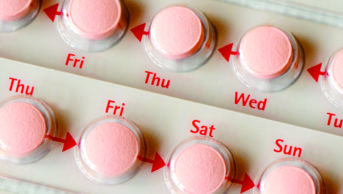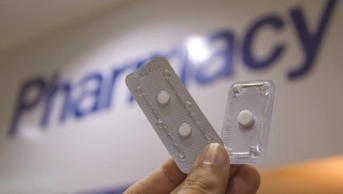
istockphoto.com
Emergency hormonal contraception should be available to buy straight off the shelf from any retail outlet, according to a campaign by the British Pregnancy Advisory Service (BPAS).
The reproductive health services charity is calling for levonorgestrel 1.5mg (Levonelle One Step, Boots Emergency Contraceptive and Consilient) to be reclassified from a pharmacy (P) medicine to a general sale list (GSL) medicine, allowing it to be sold anywhere without a pharmacist consultation, as is the current condition of sale. The BPAS says levonorgestrel meets the criteria for reclassification by the Medicines and Healthcare products Regulatory Agency (MHRA), which regulates medicines and medical devices in the UK, because it has been safely provided as a P medicine for almost 17 years. The MHRA needs evidence that “the medicine must be safe to be used without the supervision of a pharmacist”, but the BPAS believes women do not need professional advice to take the medicine safely, unless they request it.
Normally, reclassification applications are submitted by the marketing authorisation holder (MAH) of the product, although the MHRA says that any interested party, such as a professional body, can make a request for reclassification, or the MHRA can initiate the process. Levonelle was reclassified from a prescription to a P medicine in 2000 – in part, the result of an intervention to increase access to birth control measures by the then government. The BPAS said it had asked to meet with Medimpex, the MAH of Levonelle One Step, to discuss reclassification but the company refused on the grounds that the issue was too sensitive. There is an onus on the government to improve access to a drug that is safe and effective in giving women the option to avoid an unplanned pregnancy, says the BPAS, so it wants the Department of Health to intervene.
Over-the-counter (OTC) levonorgestrel costs up to £30 in the UK – up to five times higher than in other European countries. Schering (Levonelle One Step’s original MAH) set the price, in part, to ensure that emergency hormonal contraception (EHC) was not used as a regular method of contraception (
The Pharmaceutical Journal 2003;270:603); the BPAS says it hopes generic manufacturers will take a different approach to pricing levonorgestrel in the near future.
The Pharmaceutical Journal asked the BPAS if it saw issues of child protection and coercion to take EHC if it can be sold by anyone from any premises. The charity believes this is no more concerning than those under 16 buying condoms, and says younger women’s needs would not be served by restricting access. It sees mandatory consultation with a pharmacist as a barrier, rather than an aid, to women seeking help if they need it.
The BPAS suggests that levonorgestrel should be bought in the same way as nicotine replacement therapy — its unrestricted availability does not stop people asking pharmacists for help, advice or signposting to more appropriate services. The charity also criticises pharmacy’s reluctance to advertise the availability of EHC in store and claims women can find it difficult to access a product that is perceived to be stigmatised, and some women may have to ask several staff members for help before being referred to the pharmacist. We agree that clearer signage in pharmacies showing that EHC is available from the pharmacist may reduce the stigma and embarrassment surrounding it.
The Pharmaceutical Journal shares the BPAS’ concern for the high price of OTC levonorgestrel, which may prevent timely access of birth control for some women, but the contraceptive should not be reclassified as a GSL medicine. It is disappointing that the BPAS has given anecdotal accounts of women who have felt judged by pharmacists or their staff when requesting EHC from pharmacies. Pharmacists are trained professionals who are competent in handling these requests with empathy, sensitivity and professionalism, although the quality of care delivered may vary between individuals. Pharmacists ensure there are no safety concerns with using EHC and that it is used in the most effective way. They can also advise on missed oral contraceptive pills, other contraceptive methods or sexual health queries and concerns. Those who are providing the service under a local patient group direction (PGD) — documents permitting the supply of prescription-only medicines (POMs) to groups of patients, without individual prescriptions, by an accredited healthcare professional — are also trained in child protection.
It is unacceptable that some women have not received a professional EHC service in pharmacies, but reclassification is not the answer. All pharmacists should consider that women may feel embarrassed or judged during EHC consultations. These feelings can be minimised by, for example, offering women the option to speak in a private area, such as the consultation room. Women will not see the EHC consultation as a hindrance to accessing the medicine if they come away from the pharmacy with a positive experience. Implementing a national service to provide EHC on a PGD would also increase timely access to emergency contraception for young women and teenage girls. Finally, the high price of EHC cannot be justified and should be reduced to ensure that it is affordable for all women who need it.
How to have effective consultations on contraception in pharmacy
What benefits do long-acting reversible contraceptives offer compared with other available methods?
Community pharmacists can use this summary of the available devices to address misconceptions & provide effective counselling.
Content supported by Bayer
You may also be interested in

Provision of progestogen-only pill with emergency contraception in community pharmacy improves ongoing contraception use

Government group recommends reclassifying progestogen-only pill as an OTC medicine
